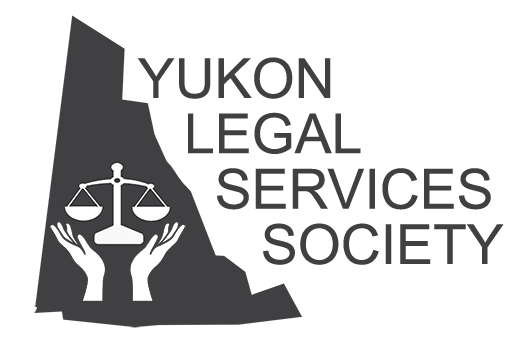Applying for Legal Aid
Questions and Answers
What are my responsibilities when receiving legal aid?
When you apply for legal aid, you agree to accept the following responsibilities:
- Be truthful in providing information with your application.
- Advise Yukon Legal Services Society of any change of information provided with your application for legal aid (address, phone number and/or financial situation).
- Keep all appointments required for an update/review of eligibility for legal aid.
- Contact your lawyer’s office once you have been approved for legal aid assistance and have been assigned a lawyer.
- Keep all appointments arranged by your lawyer and assist your lawyer in the preparation of your case.
- Maintain contact with your lawyer.
- Attend court as required by the Court or as requested by your lawyer.
- Pay any contributions promised to Yukon Legal Services Society as part of your approval for legal aid.
- Pay any money promised to Yukon Legal Services Society resulting from money you received from a settlement or judgment.
If you do not fulfill your responsibilities to Yukon Legal Services Society, your legal aid assistance may be cancelled. You may also not be able to receive legal aid in the future
What is expected of me?
Initiating and Maintaining Contact
Once you have been approved for Legal Aid and have been assigned a lawyer, you must promptly contact your lawyer’s office to schedule an appointment. Be sure to schedule your appointment for a time you are able to attend.
If you are going to be late or need to reschedule your appointment, call your lawyer’s office immediately.
You may be asked to fill out forms with information about you and about your legal problem before scheduling an appointment or speaking with your lawyer. Provide all information requested by your lawyer— the information you provide will help your lawyer to better assist you.
Your lawyer keeps a busy schedule in and out of the office, so do not expect to meet with your lawyer without an appointment. You are expected to make and keep appointments. If you have an emergency, talk to your lawyer’s assistant for assistance.
You must keep regular contact with your lawyer. If you do not maintain contact, your eligibility for legal aid assistance could be cancelled.
Providing Information
Sometimes, talking about a legal problem may be uncomfortable. Remember that your lawyer is there to help you, not judge you. For your lawyer to provide the best legal service to you, they need to know all the facts.
Be honest and answer all questions as fully and accurately as possible. If you are asked to find out more information or to bring in specific documents, promptly do so and provide the requested information or paperwork to your lawyer.
Being Prepared and Organized
Even though you are receiving legal assistance at no cost or at a low cost, think of your lawyer’s time and other resources as if you were paying for them in full. Your time with your lawyer may be limited, so make the most of the time you have by being prepared and organized.
Legal problems can often seem overwhelming, but being organized can make the situation more manageable for both you and your lawyer. It will also help you to maintain clear and accurate communication.
You can be prepared and organized by:
- Writing down the details of your legal problem before the meeting
- Listing the questions you would like to ask your lawyer in the meeting
- Taking notes during the meeting
- Keeping copies of all papers, notes, and documents relating to your legal matter in one place and bringing them with you to meetings
What can I expect from my lawyer?
The role of your lawyer is to help you with your legal problems only. He or she will only be able to help you with the legal matters approved
with your application to legal aid. As your legal representative, your lawyer can speak, write, and appear in court on your behalf.
You can expect your lawyer to talk to you about:
- Your legal options
- Your legal rights
- The law as it relates to your legal matter
- Risks and possible outcomes
- The limitations of your legal aid coverage
- What he or she can and will do to help you
- Confidentiality
Your lawyer has a responsibility to you to:
- Follow your reasonable instructions
- Return your calls in a reasonable amount of time
- Keep his/her appointments with you, or reschedule if necessary
- Answer your questions regarding your legal matter
- Provide you with any documents or information reasonably requested
- Complete his/her work for you in a timely manner
- Maintain confidentiality
Sometimes your lawyer may give you advice or instructions you may not agree with or like. Remember that your legal counsel is obligated to give you the best legal advice given his or her understanding of your situation and the law.
